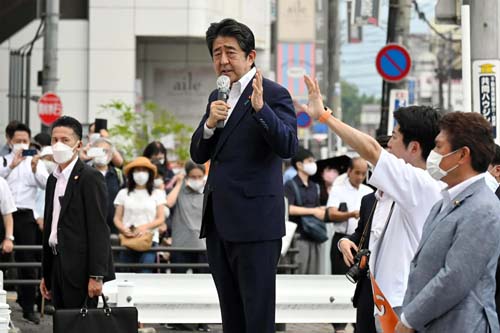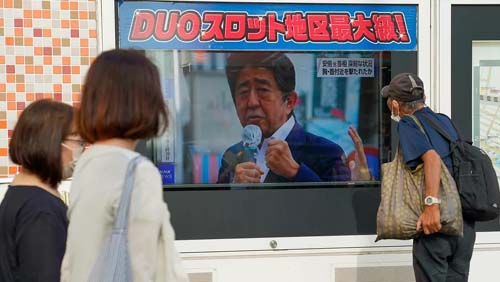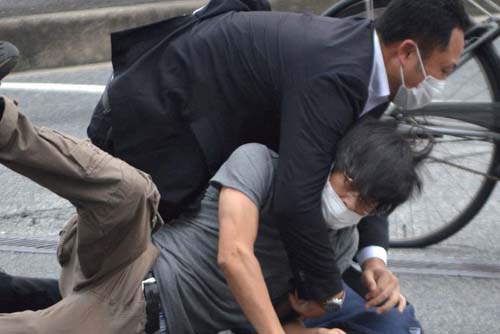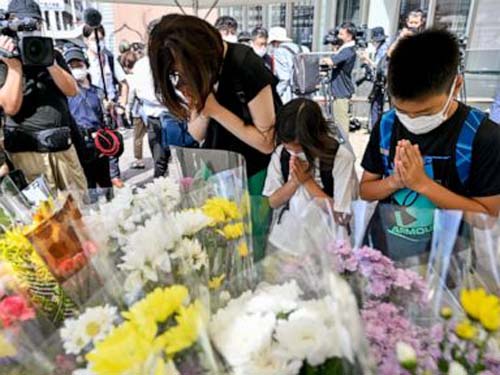
World shocked: Former Japanese Prime Minister Shinzo Abe is assassinated at a campaign rally
Former Japanese Prime Minister Shinzo Abe, a nationalist who served in the post longer than anyone else before stepping down in 2020, was shot and killed on Friday at a campaign rally.
Security tackled the suspected gunman at the scene of an attack, and he was arrested by police. The shooting shocked many in Japan, which is one of the world’s safest nations and has some of the strictest gun control laws anywhere.
“It is barbaric and malicious and it cannot be tolerated,” current Japanese Prime Minister Fumio Kishida told the media.

Police say Tetsuya Yamagami, 41, fired two shots at Abe as he was making a political speech in the city of Nara. The first shot missed, but the second hit Abe’s chest and neck, and despite attempts to revive him he died several hours later.
Yamagami was unemployed and a former member of Japan’s Maritime Self-Defense Force for three years, police say, and attacked Abe because he believed he was associated with a group Yamagami hated. Multiple handmade guns were later found at Yamagami’s home.

Abe, 67, served as prime minister in 2006 and 2007, and again from 2012 to 2020, when he suddenly resigned citing health issues. Despite leaving office, he remained influential within the ruling Liberal Democratic Party (LDP) and continued to be a force on Japan’s political landscape.
In a statement, President Biden said he was “stunned, outraged, and deeply saddened” by the assassination, calling Abe his friend. “His vision of a free and open Indo-Pacific will endure.”
President Biden later said he plans to stop at the Japanese embassy in Washington on Friday afternoon to sign a book of condolences.
Russian President Vladimir Putin described Abe as an “outstanding statesman,” and former Australian Prime Minister Tony Abbott described him simply as Japan’s “most significant post-war leader.”

Abe was, however, successful in passing legislation in 2015 that allows Japan’s military to expand its operations overseas in support of allies, including the United States.
When he left office, most Japanese were dissatisfied with his handling of the coronavirus pandemic, feeling he moved too slowly to impose a state of emergency mostly out of concerns about the economy.
